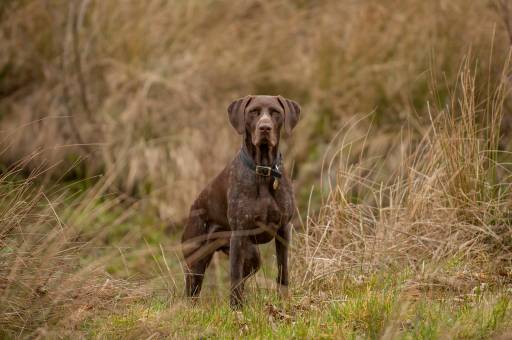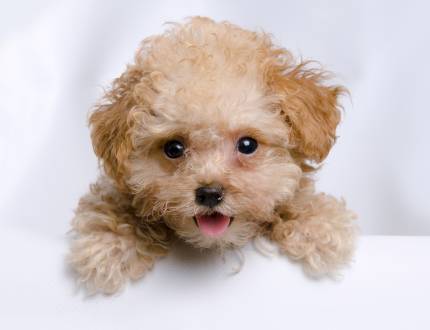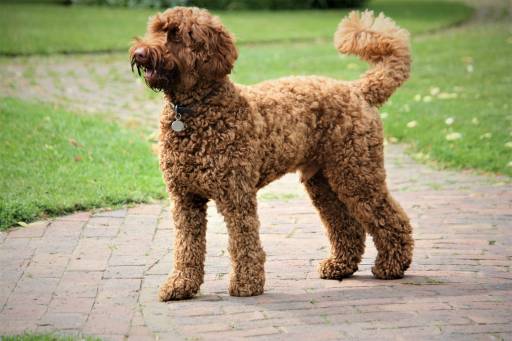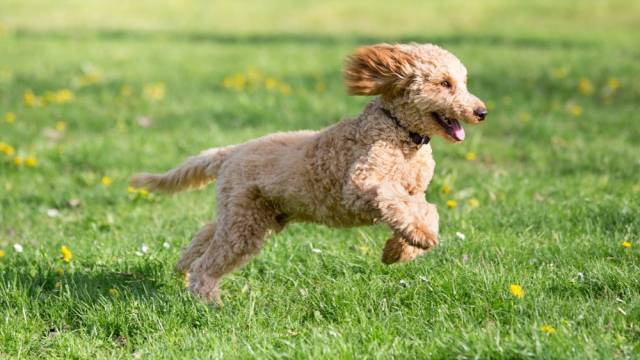Connect with a verified veterinarian in minutes. Licensed vets are available 24/7 to answer your questions. No need to worry about your furry family member.
Are you looking for a unique dog that loves to have fun and is highly intelligent? Would you like a fun, active companion dog? If so, you may want to consider the German Shorthaired Pointerpoodle! That’s a mouthful—try to say that 10 times in a row!
If you’d like to learn more about this dog breed, read on! We’ve put together information about these dogs so you can decide if this is the right dog breed for you and your family. Let’s get started!
What is a German Shorthaired Pointerpoodle?
As you may have guessed, the German Shorthaired Pointerpoodle is a hybrid dog breed. The breed was created by mixing a purebred German Shorthaired Pointer with a purebred Poodle. This is a dog that’s friendly and highly intelligent.
This is a relatively new dog breed, and not much is known about its history. However, we can learn more about the German Shorthaired Pointerpoodle by taking a look at both purebred parents.
Quick Overview of the German Shorthaired Pointer
The German Shorthaired Pointer is a dog that originally came from Germany, where they were developed to be hunting dogs. These are versatile sporting dogs that can do much more than hunt! They have a regal bearing and also make wonderful family companions. These dogs love to play with the kids or snuggle on the couch. What could be better than that?
These dogs are highly intelligent and love to work and play. They also enjoy being with their families and playing with kids. However, they may be a little too rambunctious to play with younger kids. Even so, these dogs love to be with their people. For this reason, German Shorthaired Pointers are prone to developing separation anxiety when left long for long periods.
German Shorthaired Pointers need plenty of exercise and mental stimulation. They love to swim, go for walks, and more. If you’re looking for a companion family dog, this one’s a great choice!

Review symptoms, medications & behavior to keep your pets healthy with a Vet Online in just minutes.
Ask a Vet Live NowThe Poodle
The other purebred parent of the German Shorthaired Pointerpoodle is the Poodle! The Poodle was developed to retrieve waterfowl and hunt. The dogs are highly intelligent, loving, and get along with just about everyone and other pets.
Poodles are also famous for their curly coats! Many pet parents choose to give their Poodles lovely haircuts, while others keep it simple with the puppy cut. No matter how your Poodle’s fur is trimmed, these are beautiful dogs.
This dog breed is playful and dignified unless they’re being completely silly, that is! They want to be with their families most of the time. This is a dog that will love you forever!
With parents like these, how could a German Shorthaired Pointerpoodle go wrong?
The German Shorthaired Pointerpoodle usually stands between 20 to 23 in tall and weighs between 47 to 70 lbs. They have a life expectancy of 10 to 18 years.
German Shorthaired Pointerpoodle Appearance
The German Shorthaired Pointerpoodle is an athletic dog with a slender build. They are medium size and have long legs and a long body. These dogs can come in a range of colors, including liver & white, red, blue, gray, brown, silver, apricot, and cream.
This hybrid dog breed usually has low-hanging ears that have a soft cover of fur. They tend to have a coat that’s either wavy or has a slight curl. It may grow to various lengths. The dogs have round, bright eyes.
German Shorthaired Pointerpoodle Temperament
The German Shorthaired Pointerpoodle is a highly intelligent dog. They are naturally intelligent, like both of their purebred parents. They can also be somewhat independent and think for themselves. The dogs are also eager to please, loving, and kind to their families.
Thankfully, these hybrid dogs are easy to train. These dogs do best with pet parents who are able to provide plenty of love and consistent training. What’s more, the dogs are active and are pretty busy most of the time. They don’t do well being left alone and may develop separation anxiety.
Are German Shorthaired Pointerpoodles Good Family Companions?
These dogs are great for active families that love to be outdoors. German Shorthaired Pointerpoodles are also a great choice for families that have older kids. This is a dog that loves adventure and will be happy doing whatever you enjoy, from hiking, camping, and more.
Do German Shorthaired Pointerpoodles Get Along with Other Pets?
The dogs are friendly and usually get along well with other pets. However, their parents were bred to hunt and retrieve. These same traits may be found in their hybrid offspring. So, some German Shorthaired Pointerpoodles may have a strong prey drive. In that case, the dogs would not be good with other pets.
However, if they’ve been trained and socialized, it’s possible this hybrid dog breed can live happily with smaller dogs, cats, and other pets.
German Shorthaired Pointerpoodles Food Requirements
Keep in mind that these are active dogs that require high-quality dog food. The dog food should be formulated for large, active dog breeds and contain high amounts of protein.
You’ll need to feed this dog between 2-3 cups of dog food a day, divided between at least two meals.
German Shorthaired Pointerpoodle Exercise Requirements
The German Shorthaired Pointerpoodle is an active dog that needs plenty of exercise every day. So, expect to provide at least 60 minutes of exercise each day. This is a minimum amount of exercise and may not be enough for each dog.
These dogs love all kinds of activities from swimming, hiking, walking, running, retrieving, and more. You can also count training time as exercise for your fur baby!
Training
These hybrid dogs are highly intelligent and eager to please. This makes them easy to train! And with their high level of intelligence, the German Shorthaired Pointerpoodle learns pretty quickly.
Grooming
German Shorthaired Pointerpoodles do require some amount of grooming; however, how much grooming is needed depends on the type of fur the dog has. If the dog takes after his Poodle parent, he will need to be trimmed by a groomer every few weeks. They also require regular brushing.
On the other hand, if the dog has the shorter hair of their German Shorthaired Pointer parent, they only need to be brushed once or twice a week.
Summing It Up
So, there you have it! The German Shorthaired Pointerpoodle is a hybrid dog that results from crossing a purebred German Shorthaired Pointer with a purebred Poodle. The result is a highly intelligent dog that’s also very active. These dogs are best with active families who enjoy outdoor activities such as swimming, hiking, camping, and more.
We’re pretty sure if you adopt a German Shorthaired Pointerpoodle that you’re in for many years of adventure and love!
Connect with a verified veterinarian in minutes. Licensed vets are available 24/7 to answer your questions. No need to worry about your furry family member.

Julie
Julie is a graduate of the University of North Carolina, Wilmington, where she studied Animal science. Though contrary to the opinion of her parents she was meant to study pharmacy, but she was in love with animals especially cats. Julie currently works in an animal research institute (NGO) in California and loves spending quality time with her little cat. She has the passion for making research about animals, how they survive, their way of life among others and publishes it. Julie is also happily married with two kids.
Review symptoms, medications & behavior to keep your pets healthy with a Vet Online in just minutes.
Ask a Vet Live Now




